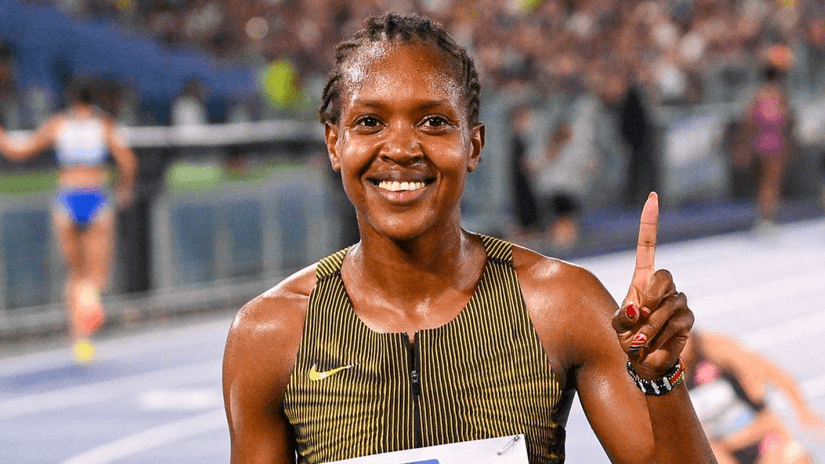Kenya’s impact in global athletics is far more than a recurring headline—it’s a living, breathing story of resilience, evolution, and hope. As the nation readies itself for the World Athletics Championships in Tokyo this September, a new generation of Kenyan athletes is stepping onto the world stage, fueled by fresh performances and a history checked by both triumph and heartbreak.
A new era for Kenyan sprinters
Recent results from the National Athletics Championships at Nairobi’s Ulinzi Sports Complex delivered electrifying news—Kenya could field a full men’s 400 meters team for the first time in eight years. George Mutinda, Brian Tinega, and Kevin Kipkorir all shattered the qualifying standard, running 44.51, 44.67, and 44.80 seconds respectively—each a personal best, each a testament to the growing depth of Kenyan sprinting talent. For a country traditionally celebrated for its middle and long-distance legends, this development marks a significant shift in Kenya’s athletics identity.
Mutinda’s rise is a stirring narrative of discovery and perseverance. Having embraced athletics only last year after a stint as a basketball guard, the 23-year-old from Masii in Machakos County has since become Kenya’s national 400 meters champion. His words reflect both humility and ambition: “I have improved my endurance, which was lacking and this victory is a clear manifestation that I can do much better if I put in more effort.” His journey, shaped by family athletic genes and guided by coach Salvan Mwangire, captures the aspiration that runs through the veins of Kenyan athletics.
History as fuel for progress
The significance of Mutinda, Tinega, and Kipkorir’s breakthrough is best understood against Kenya’s historical backdrop in the 400 meters. The last full team appearance at the World Championships dates back to 2017 in London, where the trio was eliminated in the preliminaries; further back, 1995’s Gothenburg Championships saw only Samson Kitur reach the final, finishing just outside the medals. Yet, it was the 1993 Stuttgart Championships that delivered Kenya’s brightest moment—Kitur’s bronze remains the country’s first and last world medal in the event.
Personal milestones also shape this team’s journey. Tinega, already a world mixed relay bronze medallist, relished his performance: “For three years, I have worked on running a sub-45 race, and I am glad it has finally come. It’s a good feeling.” For these men, every race is both a personal odyssey and a step in Kenya’s collective quest for sprinting respect.
| CASINO | BONUS | INFO | RATING | |
|---|---|---|---|---|
|
bonus
Sign up for KES 46 bonus after first deposit!
See 11 Bonuses
|
info
20+ crash & instant games, Aviator bonuses BK 0000704 |
|||
|
bonus
100% bonus up to KSH 10,000
See 3 Bonuses
|
info
60+ software providers, over 5,000 casino games, BK 0000751 PG 0000451 |
|||
|
bonus
Daily 25% bonus on your deposits!
See 6 Bonuses
|
info
Curacao 1668/JAZ Generous casino bonuses |
|||
|
bonus
Register for up to 31,400 KSH bonus on deposits!
See 12 Bonuses
|
info
No. ALSI-112310012-F15 Unique selection of slots & games |
US-based athletes bring global flavor
The waves of Kenyan excellence extend far beyond national borders. In the United States, student athletes like Brian Musau have become ambassadors of Kenyan potential. Musau, just 19, etched his name in NCAA history by winning the men’s 5000 meters for Oklahoma State University—the first Kenyan to do so since Edward Cheserek in 2014. His recent success in Eugene, Oregon, followed by ambitions of earning a place on the Kenyan World Championships team, underscores the international reach of Kenya’s athletic spirit.
“I’m now confident enough and its high time we combine forces and bring the gold medal that has been missing for 20 years back home,” Musau asserted, capturing the spirit of a generational relay stretching from Nairobi to American collegiate tracks. Geoffrey Kirwa, another rising star, claimed NCAA silver in the 3000m steeplechase, reminding both peers and spectators that Kenya’s future is being written in stadiums around the world.
Beatrice Chebet leads a golden age
While new names emerge, established stars continue rewriting history. Beatrice Chebet’s breathtaking performances have enshrined her among the greats. At last year’s Prefontaine Classic Diamond League, she became the first woman in history to break 29 minutes for the 10,000m, clocking 28:54.14 and shattering Letesenbet Gidey’s world record. Her Paris Olympics double gold in the 5000m and 10,000m further cemented her legacy, showcasing Kenya’s unmatched endurance prowess on the grandest stage.
Yet Chebet’s ambition is as boundless as her talent. At this year’s Rome Diamond League, she ran 14:03.69 for the 5000m—the second-fastest time ever and a new Kenyan national record. Narrowly missing Gudaf Tsegay’s world best of 14:00.21 set at the Prefontaine, Chebet declared, “I am capable of the world record. So now I am going home and will prepare for it. Everything is possible.”
The Prefontaine Classic in Eugene now looms as a potential theatre for Chebet’s quest to be the first woman to break 14 minutes over 5000m—a statistic that could ignite another revolution for Kenyan women in athletics.
National trials—where dreams converge
The journey for global prominence is defined by fierce competition at home. Kenyan trials are more than selection races—they’re crucibles where young dreams and proven experience collide. With Athletics Kenya using key international meetings such as the Prefontaine Classic to select its World Championships squads, the pressure and opportunity for homegrown and diaspora athletes have never been higher.
From seasoned national record holders like Mercy Oketch to up-and-coming names like Kelvin Loti and Mary Ekiru, the relay baton of excellence passes fluidly across events and generations. The atmosphere is charged not only with the electricity of athletic ambition but also the shared knowledge that every personal best adds to the cumulative weight of Kenya’s reputation on the world stage.
A force that inspires
Kenya’s impact in global athletics is, ultimately, a story of inspiration. Whether it’s Mutinda’s rapid rise from basketball to the sprints, Musau’s drive to reclaim a lost gold from distant history, or Chebet’s quest for records no woman has ever touched, each narrative adds new color to the country’s athletic tapestry.
- Emerging sprinters now challenge Kenya’s traditional long-distance dominance,
- Foreign-based talents enrich the pool with international experience and hunger,
- Luminaries like Chebet push the boundaries of what was thought possible for Kenyan athletes.
The road to Tokyo will be paved with sweat, tactical battles, and no small measure of faith, but the message is clear—Kenya’s impact in global athletics is only growing. The world will be watching, eager for the next moment when a Kenyan runner not only wins, but inspires.










